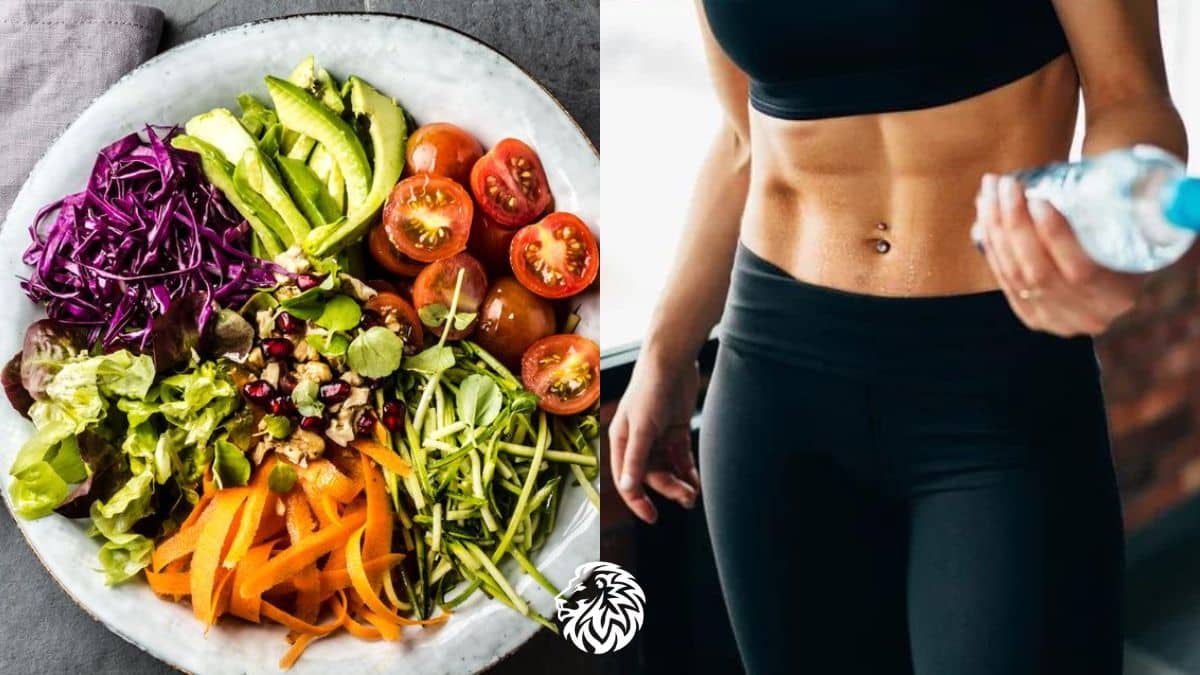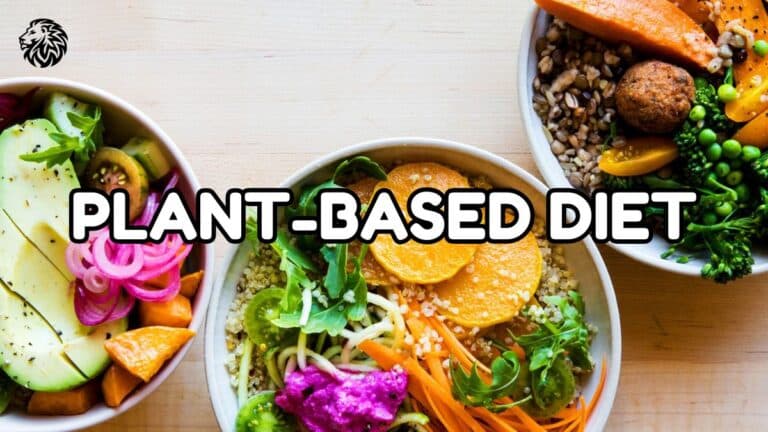The concept of a plant-based diet focuses on foods primarily from plants. This includes not only fruits and vegetables, but also nuts, seeds, oils, whole grains, legumes, and beans. It doesn’t mean that you are vegetarian or vegan and never eat meat or dairy. Rather, you are proportionately choosing more of your foods from plant sources.
In recent years, plant-based diets have surged in popularity, especially among those seeking to lose weight. This trend is supported by a growing body of scientific evidence suggesting that a diet rich in plant-based foods can lead to lower rates of obesity, heart disease, and other health conditions. More people are turning to this diet as a sustainable and health-focused approach to weight loss, rather than quick-fix diets.
One of the primary benefits of a plant-based diet for weight loss is its tendency to be lower in calories and higher in essential nutrients. These diets are rich in fiber, which helps in keeping you fuller for longer, thus reducing overall calorie intake. Additionally, a diet high in fruits, vegetables, and whole grains has been shown to improve metabolism and optimize gut health, both of which are key components in weight management. Furthermore, adopting a plant-based diet encourages a more holistic approach to health and well-being, often leading to lifestyle changes that go beyond dietary choices alone.
Integrating a plant-based diet into your lifestyle could not only assist in achieving weight loss goals but also contribute to overall improved health and a more sustainable way of eating.
Understanding Plant-Based Diets

Definition of a Plant-Based Diet
A plant-based diet primarily focuses on foods derived from plant sources. This includes a wide range of fruits, vegetables, grains, nuts, seeds, legumes, and beans. The key aspect of this diet is the predominance of plant-based foods, while not necessarily completely excluding animal products. Its flexibility can range from a diet that is largely plant-based but occasionally includes meat, to one that fully excludes animal products.
Differentiating Plant-Based Diet Variations
- Vegan Diet: This is the strictest form of a plant-based diet. Vegans avoid all animal products and by-products, including meat, poultry, fish, dairy, eggs, and honey. The focus is solely on plants and plant-derived foods.
- Vegetarian Diet: Vegetarians do not eat meat, poultry, or fish. However, there are sub-categories within vegetarianism:
- Lacto-vegetarians consume dairy products but avoid eggs.
- Ovo-vegetarians include eggs but not dairy.
- Lacto-ovo vegetarians incorporate both dairy and eggs.
- Flexitarian or Semi-Vegetarian Diet: This is a more flexible plant-based diet. Flexitarians primarily eat plant-based foods but occasionally include meat, dairy, eggs, poultry, and fish.
- Pescatarian Diet: Pescatarians eat a plant-based diet with the inclusion of fish and seafood.
The Importance of Balanced Nutrition
While a plant-based diet can offer numerous health benefits, it requires careful planning to ensure it’s nutritionally balanced. Here are some key considerations:
- Protein: Essential for muscle repair and growth. Plant-based sources include lentils, chickpeas, tofu, quinoa, and nuts.
- Iron: Crucial for oxygen transport in the blood. Found in spinach, lentils, and fortified cereals, but plant-based iron is less easily absorbed, so pairing with vitamin C-rich foods can enhance absorption.
- Calcium: Vital for bone health. Available in fortified plant milks, tofu, and leafy greens like kale and bok choy.
- Vitamin B12: Necessary for nerve function and only naturally found in animal products, so supplementation or fortified foods are often required.
- Omega-3 Fatty Acids: Important for heart health. Flaxseeds, chia seeds, and walnuts are good plant-based sources.
In summary, while plant-based diets come in various forms, they all emphasize plant-derived foods. The key to a healthy plant-based diet is ensuring it is well-balanced, providing all the essential nutrients your body needs. This often involves being mindful of food choices and, in some cases, incorporating supplements or fortified foods.
Benefits of a Plant-Based Diet for Weight Loss

Aiding Weight Loss with a Plant-Based Diet
Plant-based diets can be highly effective for weight loss for several reasons:
- Lower Caloric Density: Plant-based foods typically have fewer calories for the same volume of food compared to animal products. This means you can eat larger portions, feel satisfied, but still consume fewer calories.
- High Nutrient Profile: These diets are rich in essential nutrients, vitamins, and minerals, which nourish the body and support healthy metabolism.
- Reduced Intake of Unhealthy Fats: Plant-based diets usually have lower levels of saturated fats, commonly found in animal products. A diet low in unhealthy fats is not only good for weight loss but also beneficial for heart health.
The Role of Fiber and Low-Calorie Density
Fiber is a pivotal component of plant-based foods that contributes significantly to weight loss:
- Increased Satiety: Fiber-rich foods take longer to chew and digest, leading to a feeling of fullness for a longer period. This helps in reducing overall food intake.
- Improved Digestion and Gut Health: Fiber aids in digestion and supports a healthy gut microbiome, which is crucial for efficient metabolism and weight management.
- Stabilizing Blood Sugar Levels: High-fiber foods have a lower glycemic index, helping in controlling blood sugar spikes. This is beneficial in managing cravings and maintaining energy levels.
Low-calorie density in plant-based foods means you can consume a larger volume of food without consuming a high number of calories, which is conducive to weight management.
Impact on Metabolism and Satiety
- Boosting Metabolism: A diet rich in fruits, vegetables, and whole grains can enhance metabolic rate. A better metabolism aids in burning calories more efficiently.
- Longer Lasting Satiety: Due to the high fiber content and the complex carbohydrates in plant-based foods, these diets provide a sustained release of energy. This helps in reducing frequent hunger pangs and aids in long-term satiety.
A plant-based diet can be a powerful tool for weight loss. Its emphasis on high-fiber, low-calorie foods, along with a reduced intake of unhealthy fats, helps in creating a calorie deficit while maintaining satiety and boosting metabolism. This makes it not just effective for weight loss, but also sustainable and beneficial for overall health.
Key Nutrients in a Plant-Based Diet
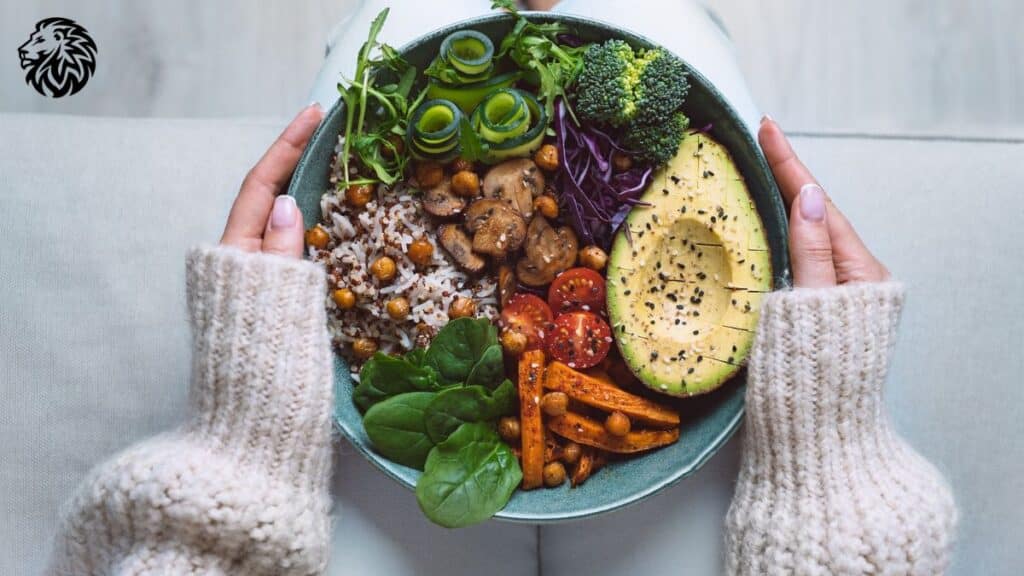
Essential Nutrients and Their Plant-Based Sources
- Protein: Essential for building and repairing tissues.
- Sources: Lentils, chickpeas, tofu, tempeh, seitan, quinoa, black beans, and various nuts and seeds.
- Iron: Vital for the formation of hemoglobin in blood.
- Sources: Spinach, lentils, chickpeas, tofu, quinoa, pumpkin seeds, and fortified cereals. Pair these with vitamin C-rich foods (like oranges or bell peppers) to enhance absorption.
- Calcium: Important for bone health and muscle function.
- Sources: Fortified plant milks and juices, tofu made with calcium sulfate, almonds, tahini, and leafy greens like kale and bok choy.
- Vitamin B12: Crucial for nerve function and blood cell formation.
- Sources: Predominantly found in animal products, so vegans should consider fortified foods (like plant milks, breakfast cereals, and nutritional yeast) or supplements.
- Vitamin D: Essential for bone health and immune function.
- Sources: Fortified foods and sunlight exposure. Supplements may be necessary, especially in areas with limited sunlight.
- Omega-3 Fatty Acids: Important for heart and brain health.
- Sources: Flaxseeds, chia seeds, walnuts, and hemp seeds. Algal oil supplements can also be a direct source of DHA and EPA, the types of omega-3s found in fish.
- Zinc: Supports immune function and wound healing.
- Sources: Legumes, nuts, seeds, oats, and whole grains.
- Fiber: Beneficial for digestion and satiety.
- Sources: Virtually all plant foods, including fruits, vegetables, whole grains, nuts, seeds, and legumes.
Importance of Supplementing Certain Nutrients
While a well-planned plant-based diet can provide most nutrients, there are a few that may require extra attention:
- Vitamin B12: It’s challenging to get sufficient B12 from plant-based sources alone. A deficiency can lead to anemia and nervous system damage, making supplementation or consumption of fortified foods crucial for vegans.
- Vitamin D: Limited sun exposure and lack of animal products can lead to a deficiency, which affects bone health and immune function. Supplements are often recommended, especially in winter months or for those with limited sun exposure.
- Omega-3 Fatty Acids (DHA and EPA): These specific types of omega-3s are found primarily in fish. Vegans might consider algal oil supplements to ensure adequate intake.
- Iron and Calcium: While available from plant sources, their bioavailability is lower than from animal products. Paying attention to intake and combining foods for better absorption (like iron with vitamin C) is important.
In summary, a plant-based diet can meet most nutritional needs, but careful planning and possibly supplementation are key to avoiding deficiencies, especially for nutrients like B12, D, and Omega-3 fatty acids. Regular health check-ups and blood tests can help in monitoring nutrient levels and ensuring a well-balanced diet.
Recommended Foods for Weight Loss on a Plant-Based Diet
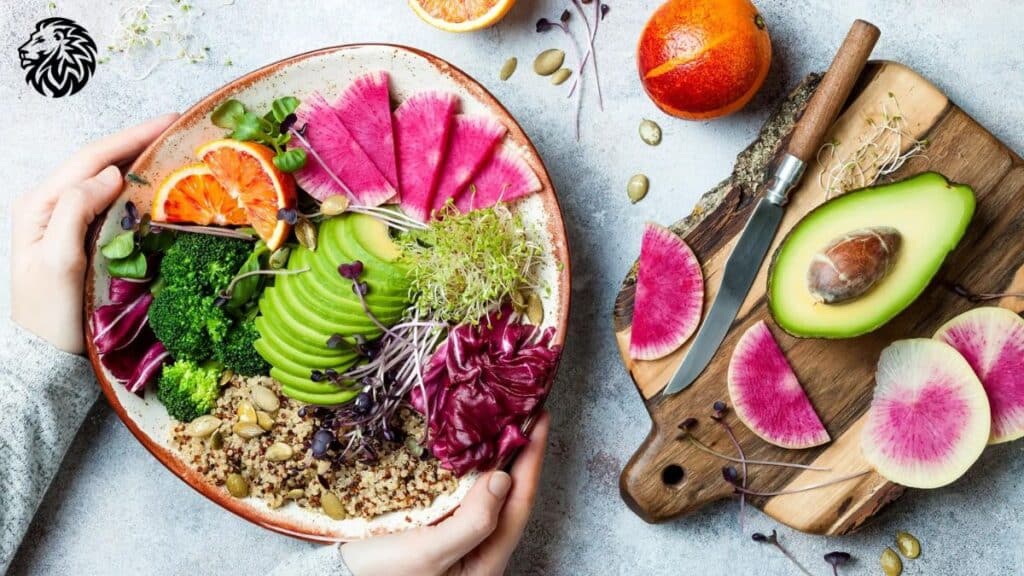
Vegetables and Fruits Ideal for Weight Loss
- Leafy Greens: Spinach, kale, Swiss chard, and collard greens. Low in calories but high in fiber and essential nutrients.
- Cruciferous Vegetables: Broccoli, cauliflower, cabbage, and Brussels sprouts. These are filling and nutrient-dense.
- Non-Starchy Vegetables: Bell peppers, asparagus, green beans, and zucchini. Low in calories, high in fiber and water.
- Berries: Strawberries, blueberries, raspberries, and blackberries. Rich in antioxidants and fiber, but lower in calories and sugar than other fruits.
- Whole Citrus Fruits: Oranges, grapefruits, and lemons. High in fiber and water content, helping with satiety.
- Apples and Pears: High in fiber and make for a satisfying, low-calorie snack.
Whole Grains, Legumes, Nuts, and Seeds
- Whole Grains: Quinoa, brown rice, oatmeal, barley, and whole grain bread/pasta. They provide sustained energy and fiber.
- Legumes: Lentils, black beans, chickpeas, and kidney beans. Rich in protein and fiber, contributing to fullness and reduced calorie intake.
- Nuts and Seeds: Almonds, walnuts, chia seeds, flaxseeds, and pumpkin seeds. High in healthy fats and protein but should be consumed in moderation due to high calorie density.
Portion Control and Mindful Eating Practices
- Portion Control: Even healthy foods can lead to weight gain if eaten in excessive amounts. Use measuring tools or visual cues (like the size of your fist) to control portions.
- Mindful Eating: Pay attention to the act of eating. Chew slowly, savor the flavors, and listen to your body’s hunger and fullness cues. This practice helps prevent overeating.
- Meal Planning: Planning meals can help in controlling portions and ensuring a balanced intake of nutrients. It also reduces the likelihood of impulsive, less healthy food choices.
- Avoiding Calorie-Dense Foods: Even on a plant-based diet, some foods can be high in calories (like oils, nuts, and dried fruits). Be mindful of these when trying to lose weight.
- Hydration: Sometimes thirst is mistaken for hunger. Drinking water before meals can reduce appetite and aid in weight control.
A variety of vegetables, fruits, whole grains, legumes, nuts, and seeds can all be part of a weight loss-friendly plant-based diet. However, portion control and mindful eating are crucial for successful weight management, ensuring that you enjoy these nutritious foods in the right amounts.
One-Week Sample Meal Plan for Weight Loss on a Plant-Based Diet

Day 1
- Breakfast: Oatmeal topped with fresh berries and a sprinkle of chia seeds.
- Lunch: Quinoa salad with mixed greens, chickpeas, cucumbers, and a lemon-tahini dressing.
- Dinner: Stir-fried tofu with broccoli, bell peppers, and carrots, served over brown rice.
Day 2
- Breakfast: Smoothie with spinach, banana, almond milk, and a tablespoon of almond butter.
- Lunch: Whole grain wrap with hummus, lettuce, tomato, cucumber, and shredded carrot.
- Dinner: Lentil soup with a side of whole grain bread and a small green salad.
Day 3
- Breakfast: Chia pudding made with almond milk and topped with sliced almonds and mango.
- Lunch: Veggie sushi rolls with avocado, cucumber, carrot, and a side of miso soup.
- Dinner: Stuffed bell peppers with black beans, corn, and quinoa, topped with avocado.
Day 4
- Breakfast: Toasted whole grain bread with avocado and a side of grilled tomatoes.
- Lunch: Buddha bowl with brown rice, steamed kale, roasted sweet potatoes, and tahini sauce.
- Dinner: Spaghetti with marinara sauce and a side of roasted Brussels sprouts.
Day 5
- Breakfast: Berry and banana smoothie bowl with a scoop of plant-based protein powder.
- Lunch: Mixed bean salad with a variety of beans, cherry tomatoes, onion, and cilantro with a lime dressing.
- Dinner: Veggie stir-fry with tempeh and a mix of your favorite vegetables over quinoa.
Day 6
- Breakfast: Overnight oats with almond milk, topped with fresh fruit and a sprinkle of pumpkin seeds.
- Lunch: Grilled vegetable and hummus sandwich on whole grain bread.
- Dinner: Vegan chili with a variety of beans, tomatoes, peppers, and spices, served with brown rice.
Day 7
- Breakfast: Green smoothie with spinach, apple, cucumber, and ginger.
- Lunch: Salad with mixed greens, roasted beets, walnuts, and an orange vinaigrette.
- Dinner: Eggplant and chickpea curry served with whole grain naan or rice.
Simple and Nutritious Recipes
- Quinoa Salad
- Cook quinoa as per instructions. Mix with chopped cucumbers, cherry tomatoes, red onion, and chickpeas.
- Dress with olive oil, lemon juice, salt, and pepper.
- Lentil Soup
- Sauté onions, garlic, carrots, and celery. Add lentils, vegetable broth, diced tomatoes, and seasonings (thyme, bay leaf, salt, pepper).
- Simmer until lentils are tender. Serve hot.
- Stuffed Bell Peppers
- Mix cooked quinoa with black beans, corn, diced tomatoes, and spices (cumin, paprika, garlic powder).
- Stuff mixture into halved bell peppers and bake until peppers are tender.
- Vegan Chili
- Cook onions, garlic, bell peppers, and spices (chili powder, cumin, paprika) in a pot. Add diced tomatoes, a variety of beans, and vegetable broth.
- Simmer until flavors meld together.
These meal plans and recipes incorporate a variety of plant-based foods that are both nutritious and conducive to weight loss. They can be adjusted according to personal taste preferences and dietary needs.
Overcoming Challenges on a Plant-Based Diet for Weight Loss
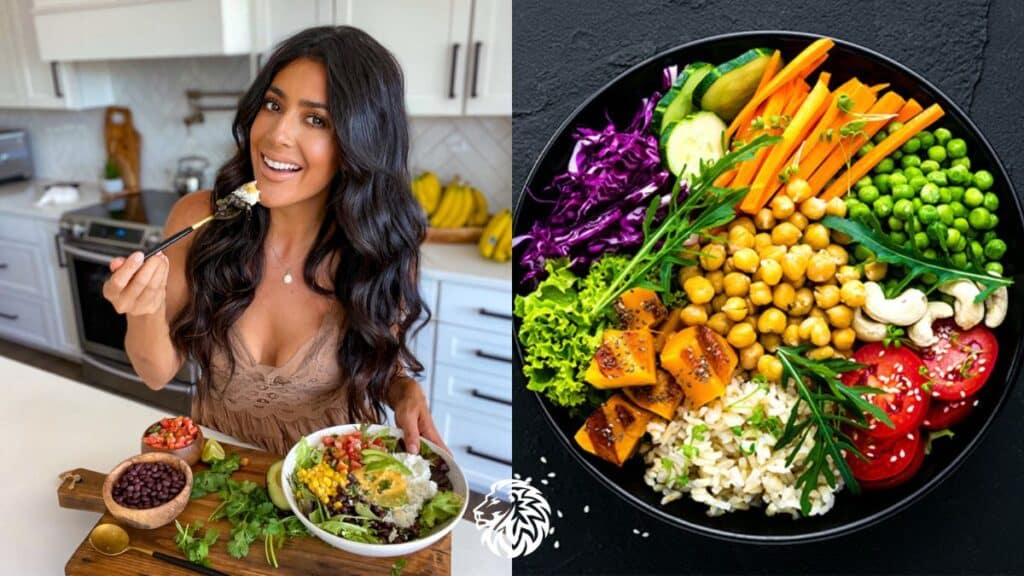
Addressing Dietary Cravings
- Understand Your Cravings: Determine if your cravings are due to emotional eating, boredom, or genuine hunger. Understanding the root cause is the first step in managing them.
- Healthy Alternatives: Keep healthy plant-based snacks on hand. For sweet cravings, opt for fresh fruit or dark chocolate. For salty cravings, try air-popped popcorn or roasted nuts.
- Balanced Meals: Ensure your meals are nutritionally balanced with enough proteins, healthy fats, and fiber. This can help in reducing cravings by keeping you satiated.
Dining Out
- Restaurant Research: Look up the menu online beforehand to find plant-based options. Many restaurants now offer specific vegan or vegetarian dishes.
- Customize Orders: Don’t hesitate to ask for modifications to a dish to fit your plant-based diet.
- Focus on Whole Foods: Choose dishes that emphasize whole foods like vegetables, grains, and legumes.
Navigating Social Settings
- Communicate Dietary Preferences: Let your host know about your dietary preferences in advance. Offer to bring a plant-based dish that everyone can enjoy.
- Focus on Socializing: Remember, the primary purpose of social gatherings is to connect with others. Food is just a part of it.
- Avoid Temptation: Stick to your dietary choices by filling your plate with plant-based options first.
Strategies for Staying on Track with Weight Loss Goals
- Set Realistic Goals: Set achievable weight loss goals. Rapid weight loss is not sustainable and can be unhealthy.
- Track Your Progress: Use a food diary or an app to keep track of what you eat. This can help in identifying any patterns or areas for improvement.
- Regular Exercise: Combine your diet with a regular exercise routine. Exercise is crucial for weight loss and overall health.
- Stay Hydrated: Drink plenty of water throughout the day. Sometimes thirst is mistaken for hunger.
- Get Support: Join plant-based diet groups or forums for motivation and advice. Support from others can be incredibly helpful.
- Be Kind to Yourself: Slip-ups happen. Be forgiving and use them as learning experiences rather than reasons to give up.
Overcoming these challenges involves a mix of preparation, flexibility, and a focus on your overall goals. Remember that transitioning to a plant-based diet and achieving weight loss are gradual processes that require patience and persistence.
Lifestyle Considerations for Effective Weight Loss on a Plant-Based Diet
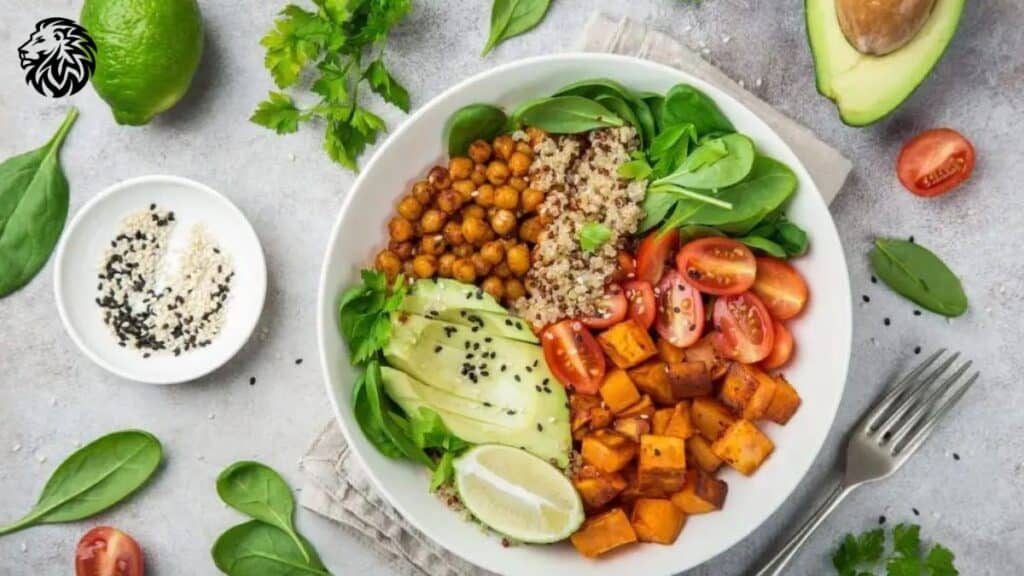
Combining Diet with Exercise
- Enhanced Weight Loss: Exercise increases the calorie deficit necessary for weight loss, complementing the dietary changes. A combination of cardiovascular and strength training exercises is most effective.
- Improved Metabolism: Regular physical activity boosts metabolism, helping your body burn calories more efficiently.
- Muscle Building and Maintenance: As you lose weight, it’s important to preserve muscle mass. Strength training exercises, coupled with adequate protein intake from a plant-based diet, support muscle health.
- Enhanced Mood and Energy Levels: Exercise releases endorphins, improving mood and energy levels, which can make it easier to stick to dietary changes.
The Role of Sleep in Weight Loss
- Regulation of Hunger Hormones: Lack of sleep can disrupt the balance of hunger hormones, ghrelin and leptin, leading to increased appetite and potential weight gain.
- Improved Metabolic Function: Adequate sleep is essential for maintaining a healthy metabolism. Poor sleep can affect the body’s ability to use insulin, leading to fat storage.
- Rest and Recovery: Quality sleep allows for the body’s rest and recovery, particularly important if you’re combining your diet with an exercise regimen.
Stress Management and Its Impact
- Reducing Emotional Eating: Stress can lead to emotional eating or cravings for unhealthy foods. Managing stress is crucial to prevent this and stay on track with your diet.
- Cortisol Levels: Chronic stress elevates cortisol, a hormone that can promote fat storage, especially around the midsection. Effective stress management helps in controlling cortisol levels.
- Stress-Reduction Techniques: Incorporate stress-reduction practices such as meditation, yoga, deep breathing exercises, or engaging in hobbies.
Integrating Lifestyle Changes for Sustainable Weight Loss
Successful weight loss on a plant-based diet isn’t just about the food you eat. It’s also about adopting a holistic approach that includes regular physical activity, ensuring adequate sleep, and managing stress levels. These lifestyle factors work synergistically with your diet to promote weight loss, improve overall health, and enhance the quality of life. Making these practices a regular part of your routine can lead to more sustainable and long-term weight loss results.
Conclusion
Summary of Key Points
- Understanding Plant-Based Diets: A plant-based diet emphasizes foods derived from plants, including fruits, vegetables, nuts, seeds, oils, whole grains, legumes, and beans. Variations include vegan, vegetarian, flexitarian, and pescatarian diets.
- Benefits for Weight Loss: Plant-based diets aid in weight loss due to their low caloric density and high fiber content. They enhance satiety, improve metabolism, and help in maintaining a lower calorie intake.
- Essential Nutrients: Key nutrients in a plant-based diet include protein, iron, calcium, vitamin B12, vitamin D, omega-3 fatty acids, zinc, and fiber. Some nutrients, like B12 and D, might require supplementation.
- Recommended Foods: A variety of vegetables, fruits, whole grains, legumes, nuts, and seeds are recommended. Portion control and mindful eating are crucial for weight loss success.
- Meal Plans and Recipes: A sample meal plan and easy-to-prepare recipes were provided, showcasing how diverse and nutritious a plant-based diet can be.
- Overcoming Challenges: Strategies for dealing with cravings, dining out, and social settings were discussed to help stay on track.
- Lifestyle Considerations: Combining diet with regular exercise, ensuring adequate sleep, and managing stress are key components for successful weight loss on a plant-based diet.
Encouragement for a Sustainable Approach
As you embark on your weight loss journey with a plant-based diet, remember that this is more than just a dietary change; it’s a lifestyle shift. Approach it as a sustainable, long-term change for better health, rather than a quick fix. Focus on nourishing your body with a variety of plant-based foods and pay attention to getting all the essential nutrients. Combine your dietary efforts with regular exercise, good sleep hygiene, and stress management techniques for a holistic approach to weight loss.
Keep in mind that every individual’s body is different, and what works for one person may not work for another. Listen to your body, be patient with yourself, and don’t hesitate to seek guidance from nutrition experts, especially when transitioning to a plant-based diet. With dedication, a balanced approach, and a focus on overall well-being, you can make your weight loss journey on a plant-based diet both enjoyable and successful.
